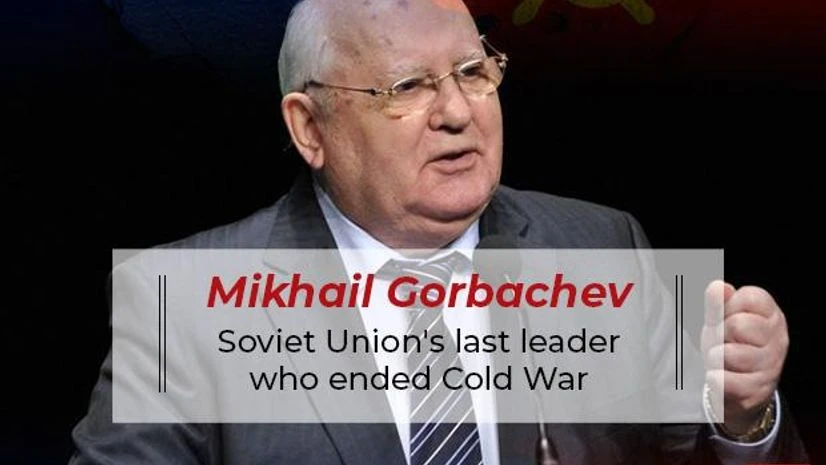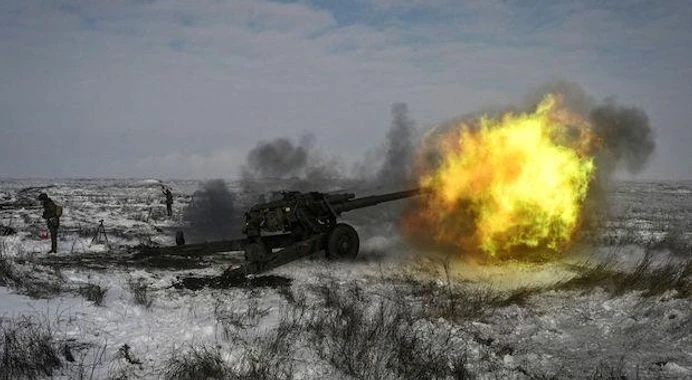In pics: Mikhail Gorbachev, the Soviet leader who ended the Cold War
Mikhail Gorbachev died on August 30. These pictures narrate how he brought the Soviet Union closer to the West than at any point since World War Two
)
Mikhail Gorbachev, who ended the Cold War without bloodshed but failed to prevent the collapse of the Soviet Union, died on August 30 at the age of 91. Photo: Reuters
Mikhail Gorbachev, who ended the Cold War without bloodshed but failed to prevent the collapse of the Soviet Union, died on August 30 at the age of 91. Gorbachev, the last Soviet president, forged arms reduction deals with the United States and partnerships with Western powers to remove the Iron Curtain that had divided Europe since World War Two and bring about the reunification of Germany.
But his internal reforms helped weaken the Soviet Union to the point where it fell apart, a moment that President Vladimir Putin has called the "greatest geopolitical catastrophe" of the twentieth century.
In December 1986, Gorbachev phoned Andrei Sakharov, the most vilified dissident in the USSR. Sakharov had been languishing for seven years in internal exile in the closed city of Gorky for his condemnation of the invasion of Afghanistan. In a radical rupture with the etiquette of his predecessors, Gorbachev politely invited Sakharov to return to Moscow to “resume your patriotic work”. When Gorbachev introduced multi-candidate elections to a new Soviet legislature, the Congress of People’s Deputies, Sakharov became one of 2,250 new parliamentarians.
"He gave freedom to hundreds of millions of people in Russia and around it, and also half of Europe," said former Russian liberal opposition leader Grigory Yavlinsky. "Few leaders in history have had such a decisive influence on their time." But Gorbachev saw his legacy wrecked late in life, as the invasion of Ukraine brought Western sanctions crashing down on Moscow, and politicians in both Russia and the West began to speak of a new Cold War. "Gorbachev died in a symbolic way when his life's work, freedom, was effectively destroyed by Putin," said Andrei Kolesnikov, senior fellow at the Carnegie Endowment for International Peace.
Over the years, Vladimir Putin has systematically destroyed the historic achievements of Gorbachev. On their ruins, his regime is mobilising militants behind a new totalitarian project, according to experts. Once again, education and culture are being policed by the state. Once again, hundreds of prisoners of conscience are languishing in prisons and labour camps. And once again, Russia is locked in a potentially apocalyptic confrontation with the West.
Mikhail Gorbachev was shocked and bewildered by the Ukraine conflict in the months before he died and psychologically crushed in recent years by Moscow's worsening ties with Kyiv, his interpreter, Pavel Palazhchenko, said. "It's not just the (special military) operation that started on Feb. 24, but the entire evolution of relations between Russia and Ukraine over the past years that was really, really a big blow to him. It really crushed him emotionally and psychologically," he said.
World leaders were quick to pay tribute. European Commission chief Ursula von der Leyen said Gorbachev, who was awarded the Nobel Peace Prize in 1990, had opened the way for a free Europe. US President Joe Biden said he had believed in "glasnost and perestroika openness and restructuring not as mere slogans, but as the path forward for the people of the Soviet Union after so many years of isolation and deprivation." British Prime Minister Boris Johnson, citing Putin's invasion of Ukraine, said Gorbachev's "tireless commitment to opening up Soviet society remains an example to us all".
More From This Section
Don't miss the most important news and views of the day. Get them on our Telegram channel
First Published: Sep 02 2022 | 1:57 PM IST


)